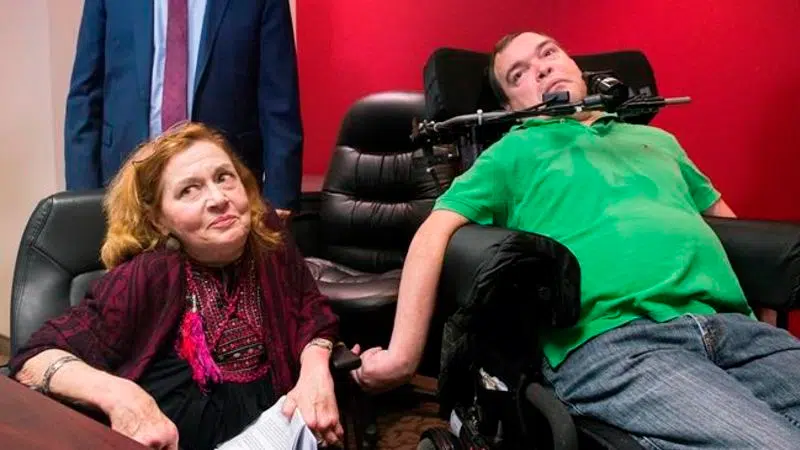
Quebecer behind assisted dying ruling wants to see it become election issue
MONTREAL — Armed with a court judgment that potentially expands access to medical aid in dying across the country, one of the Quebecers who led the legal fight described it Thursday as a win for those struggling with incurable, debilitating diseases.
“It will open the doors of heaven to all those suffering like me,” said Jean Truchon, speaking through a friend at a news conference the day after a landmark Quebec Superior Court decision invalidating sections of the federal and Quebec laws on medically assisted dying.
Nicole Gladu and Jean Truchon both have incurable, degenerative illnesses but they had seen previous requests for an assisted death denied.
On Wednesday, Justice Christine Baudouin ruled invalid the Criminal Code requirement that a natural death be “reasonably foreseeable” before someone can be eligible for assisted death. She also invalidated a section of the Quebec law that says people must “be at the end of life” to receive the procedure.
